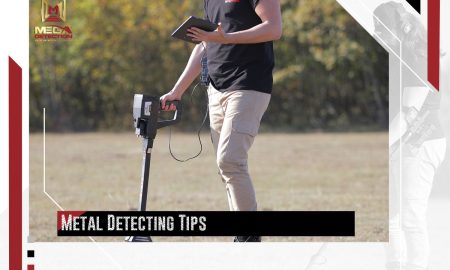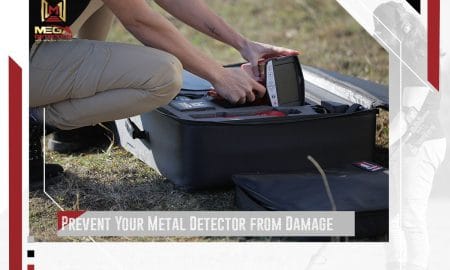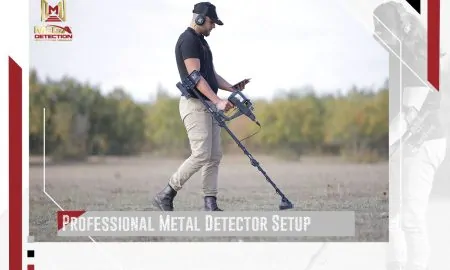How To Eliminate Unnecessary Targets When Metal Detecting
To eliminate unnecessary targets with a metal detector is one method to avoid catching trashy signals. It also allows your tool to focus on detecting valuable objects like coins. But how does a metal detector eliminate ?
Metal detectors can eliminate unnecessary targets detection through discrimination. These tools can discriminate between ferrous and non-ferrous metals. for example Aluminum is non-ferrous, so the inductance of the detector’s search coil will reduce.
It is essential to understand how discrimination works and how it eliminates unnecessary targets. But another critical factor is to learn some tips on finding valuable objects in places with too much garbage.
Discrimination Settings: Eliminate Aluminum With Metal Detector
Discrimination is a metal detector feature that allows it to ignore certain metals. This way, people can avoid low-value objects while they are metal detecting.
However, it is essential to note that not all metal detectors have a discrimination function. There are three basic types of metal detectors:
The VLF have a discrimination feature. On the other hand, the PI detector does not.
Moreover, metal detectors with discrimination settings can differentiate ferrous from non-ferrous metals. Ferrous metals increase the inductance of the detector’s search coil, while non-ferrous metals reduce it. As a result, the sensor ignores non-ferrous metals like aluminum .
Aluminum are non-ferrous metals. So once you understand how discrimination is, you can eliminate aluminum with a metal detector.
Different Modes For A Metal Detector’s Discrimination Feature
Old models of metal detectors only come with a dial. These old models still give signals for metals. However, the dial only shows people the type of metal they might be catching.
Some models also come with a dial that points to numbers to tell users the signal’s strength. Then, users can match these numbers with the general signal strengths of metals. So, if you have an old detector, you have to know the general strength of aluminum to discriminate against them.
Moreover, newer metal detectors come with a coin mode. This feature ensures that your tool will only detect signals from coin-shaped targets.
There is also an all-metal mode. In this feature, the metal detector does not discriminate between ferrous and non-ferrous metals at all. Meaning the detector will catch every signal that it comes in contact with.
Tips To Eliminate Aluminum Can With Metal Detector
Metal detecting is not a complicated hobby at all. It only takes practice to get used to your metal detector and find valuable treasure.
However, finding valuable items when metal detecting can be difficult if many aluminum are buried in the ground. Fortunately, there are some things that you can do to stop your metal detector from detecting trashy finds like aluminum cans.
Metal detect after a rain
The moisture on the ground after rain makes the search coil more sensitive to buried metals. Your device may even detect deeply buried objects that would typically go undetected. The reason is that conductivity increases when the ground is wet.
You can also quickly eliminate aluminum with a metal detector when the ground is wet. The reason is that the depth that your tool can detect increases. So, while you are discriminating against aluminum , you can catch signals from coins, jewelry, or even gold buried deeply on the ground.
Moreover, it is easier to dig the ground where you detect signals when the soil is wet.
Overlap the sweeps of your search coil
While your device ignores aluminum , it is also easy to pass up valuable metals if you do not do enough search coil overlaps.
Sweeping the search coil too fast is also a mistake as you might miss your target. The reason is that some metal detectors are slow in processing audio signals and target ID. So if you swept your metal once and found no signal, do a second sweep as you might detect something.
Additionally, it would be best if you always did your metal detection in small sections. Focus on an area at a time and swing the search coil in different directions. This way, you will be able to eliminate unnecessary targets with a metal detector. You will also have an easier job of detecting valuable items.
It is also essential to note that thin items like coins buried deeply produce iffy signals. However, ignoring them could mean missing something valuable.
Purchase the best metal detector that you can afford
If you are already quite familiar with metal detectors, then it is time that you quit on beginner models.
You get what you pay for when it comes to metal detectors. So, purchasing the best model that your budget can will allow you to have better discrimination features. And better discrimination means your device can ignore aluminum cans buried in your hunting site.
Moreover, some old metal detectors do not have a discrimination feature. For this reason, using them will not let you eliminate the signals coming from unnecessary targets and trashy objects.
On the other hand, high-quality metal detectors have discrimination controls, sensitivity, and ground balancing. This way, you will be able to maximize your finds.
Wear headphones at all times
True enough, wearing headphones when metal detecting has a few disadvantages. For instance, they can get uncomfortable after a while, and the cord can tangle on tree branches. Still, there are also good reasons to wear headphones while metal detecting.
If your headphones are well insulated, you can cut out background noise. As a result, you will be able to focus more on the signals detected by your metal detectors. This way, you can eliminate aluminum interference with a metal detector by hearing the changes in the signals that your tool detects.
Be familiar with your metal detector.
While metal detecting is not complicated if you are familiar with it, it takes a lot of time and practice to master. Each metal detector model has its settings that consume time to learn as you go. It also goes to show the discrimination feature.
As mentioned, metal detectors discriminate non-ferrous from ferrous metals by changing the signals that the coil delivers. Suppose you are familiar with your metal detector. In that case, you will quickly differentiate the signal created by non-ferrous metals from the one created by ferrous materials.
Once you are familiar with your tool, you can quickly eliminate aluminum interference with a metal detector.
Use a small search coil
In dirt full of trashy items like aluminum cans, it is ideal to use iron discrimination along with a small coil. A large coil works less effectively in soil full of trash. The reason is that the extra width of the coil detects too many objects simultaneously.
On the other hand, a small search coil only picks up a few objects. For this reason, you will not get confused with signals and may pull out valuable items.
If your device has an interchangeable coil, you can purchase a small search coil to help you eliminate aluminum can interference with a metal detector.












Leave a Reply